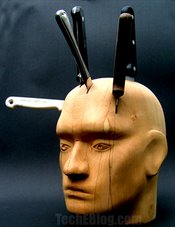There is nothing wrong for dramatists to write drama. But it really worths blogging if a dramatist is found making his life a drama. Sorry, you won't find anybody to come to watch your performance.
And when I say about this drama, it is surely going to be interesting for all the audience, not only our neighbours. I'm not interested to review when a wife hits a husband with a dadu or vice verse. Let me be open. I want to review a drama, which was not meant to be performed in the theatre ( or in the streets as many NGOs prefer these days).
Well, there was a hero and a heroine (but this drama is not a romantic one). But I would like to beg your pardon, being in a patrimonial society, I will be writing more about the hero and the heroine's role in this drama is not very clear; and because though a feminist, the heroine plays little in this drama (at least her on-stage part was weak. The hero was is acute enemy of monarchy. He has written a number of dramas to bring people's attention to monarchy and to create a sensation in the street against this old feudal system. It was the reason his dramas became particularly popular during the Jana Andolan II days. And in less than a year, he becomes a talk-of-the-town matter. I did not mean that the hero had done nothing before the Jana Andolan II days. I became fan of the hero specially because of his debut production during the Panchayati Time, based on a French novel. Well, this very craze paved a way to make him an autocrat these days.
After successful (?) culmination of the Jana Andolan II, the hero catches the craze of the donors and he earns series of "project" of disseminating information about democracy, competition and of course the election of the constituent assembly. As the usual donors, they give the hero (who plays the role of a director) mountains of money so that the artists find enough money to feed their wives and children a good stock of "dalbhat". But, as the hero finds the "royal" blood in his democratic veins, he suddenly changes his role and instead of backing the backbone of democracy, the performers, he takes the role of the king and acts like that. He takes his troupe to villages to perform dramas on constituent assembly and so forth. But he takes all the money which had to be in the artists' pockets (as TA and DA) for this drama and lets the newcomers perform with half-filled bellies. That is the creativity of the drama. Before the climax the hero buys a home in the capital that costs Rs 70 lakhs at Dhapasi. It was big irony in the drama that when pioneers of Nepali drama are living in rented houses, this hero taps the donation dollars and makes luxurious home for himself, at the cost of his junior artists, or say, the disciples.
The climax comes - The obedient and sincere junior artists come to the office of the hero and puts their dissatisfaction forward in gentle way. Since, the hero has turned a real king, he refuses to listen to them and keeps bullying on them, just as Kind Gyanendra did for 18 months. What was the result? , just the poor, dissident and skilled junior artists open their own theatre and continue their contribution to performing arts. I have heard that the hero is not happy with the climax.
Moral: Lobh le labh, labh le bilap.
skip to main |
skip to sidebar

It is as open as a suicide note. No cheating and no politicizing.

3 comments:
Oi, achei teu blog pelo google tá bem interessante gostei desse post. Quando der dá uma passada pelo meu blog, é sobre camisetas personalizadas, mostra passo a passo como criar uma camiseta personalizada bem maneira.(If you speak English can see the version in English of the Camiseta Personalizada. Thanks for the attention, bye). Até mais.
U must be talking about bloody Sunil Pokhrel and his Gurukul. Great...but please give that damn name so that other persons will also understand the real charatcter of that nautanki roleplayer.
An actor in real role
great way of writing about somebody but not giving the name. It keeps the secret and also decency to the person you are trying ot portray.
Keep up
Post a Comment